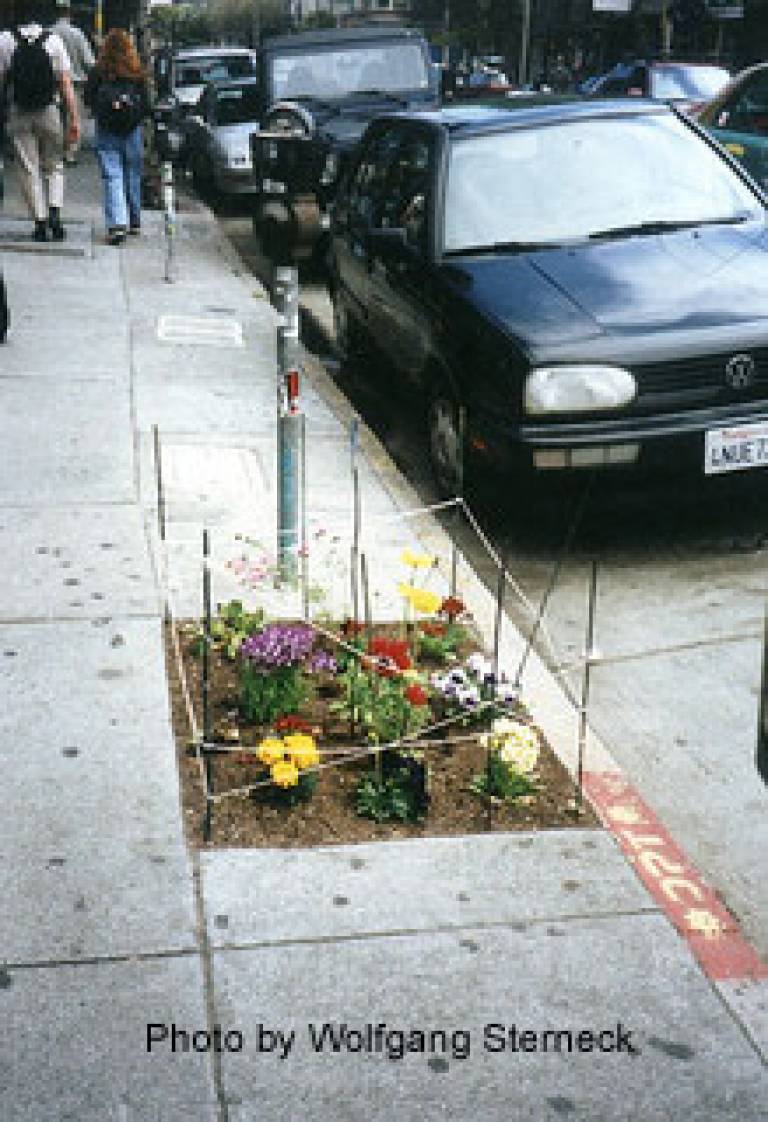The Creativity of Property: An Interdisciplinary Workshop on the Reinvention of Ownership
26 June 2012, 12:00 am

Event Information
Open to
- All
One-day workshop on the 26th of June at University College London
http://creativityofproperty.wordpress.com/
Aleksi Knuutila, UCL Anthropology (a.knuutila.11@ucl.ac.uk)
David Jeevendrampillai, UCL Anthropology (david.jeevendrampillai.10@ucl.ac.uk)
Gabrielle Ackroyd, UCL Anthropology (gabrielle.ackroyd.10@ucl.ac.uk)
The workshop invites contributions on the topic of property and ownership in moments of change, i.e. the way concepts, institutions and structures of ownership are being negotiated and reinvented, how notions of ownership are being symbolically challenged and promoted, and how the constraints of property elicit creative responses. It will explore what it is, in our times, to possess or author something; on what grounds a place belongs to people or people to a place; what it takes to claim something or to make it common for everyone; and how people are creatively making something of their own out of the institutions of property. It explores the reasons and consequences behind the constitution of property, showing how it fabricates certain categories of persons, groups and objects, and assigns originality or origination.
The past two decades have seen the dominant liberal mode of ownership expand to new areas. Yet this development has been paralleled with a diversification, as institutions of property have been creatively remade or appropriated for different purposes. For example, notions of authorship are challenged in digital commons and "remix cultures", just as indigenous groups are calling on international cultural property law to protect their stakes in their collective ways of life. New consumption infrastructures such as Boris Bikes mean use no longer depends on ownership, while many protests in 2011 depended on claiming public spaces for purposes of demonstration and deliberation.
The attempts to reinvent or challenge systems of property might be best understood with a theoretical lense that places the agency, creativity and fluidity of social action at its heart. This might make current the calls for anthropological theory that see property as a on-going, dynamic process of assertion and contestation, and not as the result of reified social relations (Strang and Busse 2011). Such an approach would be more sensitive to wider conditions of social practices and their interaction with the material and spatial environment. It could show how personhood or group identity may not independent and clearly bounded, but constituted with the things possessed or acts of appropriation. It can demonstrate the reality of numerous ways of owning or making things common, and the reasons of power, culture and institutions that may keep them from being dominant.
The day will consist of two panels, which will be oriented towards the following themes:
I) Space and place
- - How ideas of territory, belonging, and identity are contested and challenged
- - The appropriation and reclaiming of public spaces
- - How people make spaces their own through creativity, movement and innovation
- - Who controls cities in moments of change, and what skills and discourses are deployed in doing so
- - How the movement and rhythms in places are directed, controlled and unevenly distributed
II) The self and materials
- - Acts of appropriating objects as personal property
- - The interrelation between personhood, peoplehood and possessions
- - Responses to the constraints of property systems
- - Material qualities of assets and their consequences for systems of property
- - Creativity, originality, and how it is recognized and channeled by systems of property
- - How and why new objects come to be considered as property
- - Struggles between several different ways of owning or making things common
Practicalities of the workshop
The workshop will take place on the 26th of June in the Anthropology department of University College London. Participants that wish to present in the sessions will be asked to pre-circulate short extracts of their work of between 1000 and 5000 words. We welcome PhD level work, which could be drafts of articles or chapters of theses. Participants are asked to give 20 minute presentations of their work. The workshop will emphasise active involvement in an interactive and informal setting, with a focus on improving academic work and identifying emerging issues for research. Each workshop will have an invited academic as a discussant, who will discuss the contributions together with the audience. We have confirmed James Leach as one of our discussants. The day will end with a roundtable discussion that will bring together and conclude on the themes that were brought out during the day. light lunch is provided for the participants. Places are limited for the event to facilitate discussions.
Submission of abstracts
Please send an e-mail to Aleksi Knuutila (a.knuutila.11@ucl.ac.uk) with the following information:
- - Title of paper
- - An abstract of 300-500 words
- - Contact details
- - University affiliation and city from which you will be traveling
The call for papers will close on 15th of May. Individuals who have been accepted based on their abstracts will be asked to circulate short extracts of their work in early June.
This workshop is funded by the UCL Anthropology Reading Group and Research Fund.
 Close
Close

